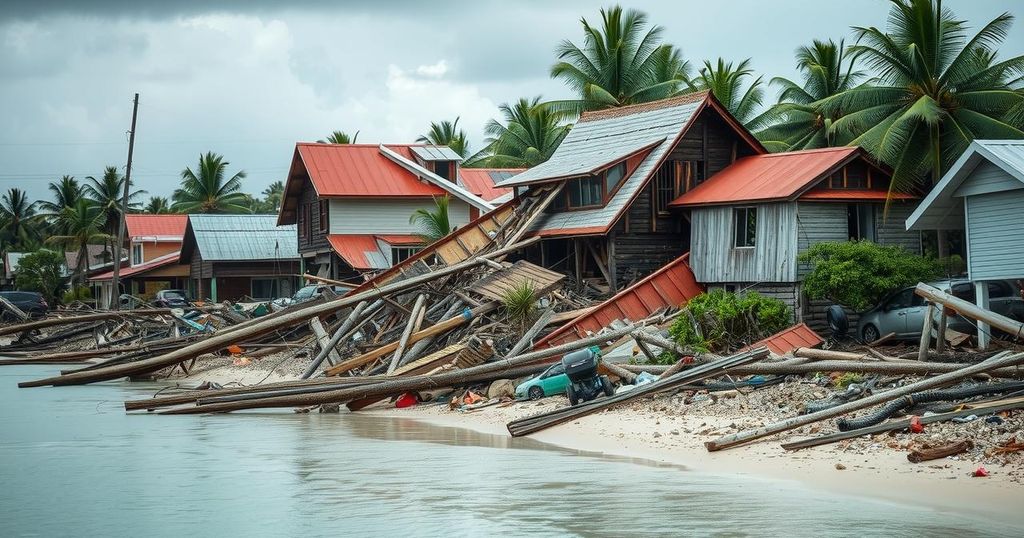Devastation in Mayotte: Cyclone Chido Leaves Thousands Feared Dead
Cyclone Chido has severely impacted Mayotte, a French territory, with fears of thousands dead amid extensive destruction of infrastructure and housing. Rescue efforts are hampered by damage to essential services and extreme living conditions, highlighting the urgency of response and the potential influences of climate change on severe weather events.
Rescue operations are underway in Mayotte, a French overseas territory in the Indian Ocean, following the catastrophic impact of Cyclone Chido, the most severe storm to strike the region in nearly a century. The official death toll currently stands at 14; however, local officials express concern that the actual number of fatalities could reach hundreds or even thousands as they assess the widespread destruction across the densely populated archipelago, which has approximately 300,000 residents.
Reports indicate that entire neighborhoods, particularly those constructed as substandard slum settlements, have been entirely leveled. The cyclone has inflicted severe damage on critical infrastructure, including airports and hospitals, constraining rescue efforts. Damage to the airport’s control tower has restricted landings to military aircraft only, further complicating the situation. Additionally, power has been disrupted throughout the islands, exacerbating the humanitarian crisis.
French authorities, along with personnel from the nearby island of Reunion, have dispatched rescue workers, medical teams, and supplies to assist with recovery efforts. Despite its status as the poorest French territory within the European Union, Mayotte continues to attract numerous economic migrants due to the benefits provided by the French welfare system. Reports indicate that approximately 100,000 residents live in makeshift slum conditions, which have been substantially affected by Cyclone Chido.
The cyclone season in the southwestern Indian Ocean commenced in early December, and Cyclone Chido first struck Mayotte on Saturday as an intense tropical cyclone, classified similarly to a category-4 hurricane. The storm subsequently made landfall on Madagascar, a larger island nation situated south of Mayotte. According to BBC reports, it is suggested that climate change may have played a role in the cyclone’s intensified nature, as warmer air and ocean temperatures contribute to the severity of such storms.
Cyclone Chido is noted as the most significant storm to affect the Indian Ocean region in nearly a century. The storm’s impact on Mayotte, an isolated French territory, highlights the vulnerability of communities living in precarious conditions. With thousands of residents living in substandard housing, the implications of natural disasters can be catastrophic. Furthermore, the increasing intensity of cyclones, potentially linked to climate change, raises concerns for future weather patterns and disaster preparedness in the region.
In summary, Cyclone Chido has caused widespread devastation in Mayotte, resulting in numerous fatalities and significant damage to infrastructure and housing. As rescue efforts are being initiated, there are alarming indications that the death toll may be much higher than currently reported. This disaster reinforces the urgent need for enhanced preparedness against natural calamities, particularly in regions susceptible to extreme weather exacerbated by climate change.
Original Source: www.cbsnews.com




Post Comment